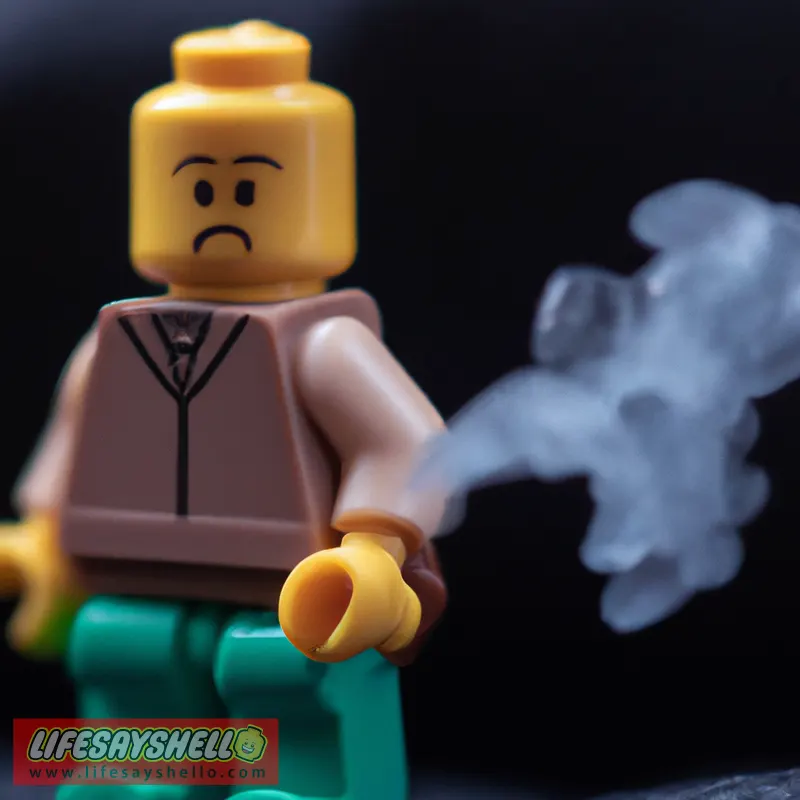Why Can't I Stop Farting So Much Lately?

Have you been letting loose more often and louder than normal? Excessive and smelly gas can be an embarrassing nuisance. But don't worry - it's a common problem that usually isn't serious. Read on to learn about the possible causes and how to tame your turbulent toots.
We all pass gas up to 20 times per day on average. It's a natural byproduct of digestion as your gut bacteria munch on fiber and other complex carbs. But if you suddenly find yourself farting more than usual, there are some likely explanations.
What's Causing My Increased Gas and Bloating?
You're swallowing more air. Eating or drinking too fast can cause you to swallow more air, which then gets released from your bottom. Other habits like chewing gum, smoking, and using a straw can also lead to increased air swallowing.
You're backed up. When you're constipated, stool builds up in your colon. This not only makes you feel bloated, but also ferments and produces gas that has to escape somehow.
You ate a common fart-inducer. Beans, dairy products, high-fiber foods, sugar-free candies, and artificial sweeteners are notorious for causing gas. If you suddenly started eating more of these items, that could be the culprit.
You have an intolerance. Lactose intolerance and other food sensitivities like gluten or FODMAPs can make your gut go haywire after eating trigger foods. Bloating and excessive gas are common symptoms.
You have an infection. Gastroenteritis and bacterial overgrowth in the intestines can both increase flatulence. It's your body's way of expelling the pathogens.
You started a new medication. Antibiotics, statins, diabetes drugs, and hypertension meds are some that list gas as a potential side effect. Read the label to see if any of your new prescriptions could be contributing.
Warning Signs That Something's Wrong
In most cases, frequent farting is just an annoyance and not indicative of a serious health condition. But if it's accompanied by any of these symptoms, make an appointment with your doctor right away:
- Severe or worsening abdominal pain
- Nausea and vomiting
- Blood in your stool
- Unexplained weight loss
- Ongoing diarrhea
- Fever over 101°F
These can signal more troubling issues like gallstones, bowel obstruction, ulcerative colitis, or even colon cancer. It's better to get checked out and have your doctor give you the all clear.
Tips to Decrease Gas and Bloating
Luckily there are some simple lifestyle tweaks that can help reduce excessive farting:
Chew thoroughly. Wolfing down your food leads to more swallowed air. Take smaller bites, chew each one slowly, and pause between mouthfuls.
Limit carbonated drinks. The bubbles add air into your digestive system. Opt for still water or decaf beverages.
Skip the straw. Drinking from a straw causes you to swallow more air. Cup your hand around the glass instead.
Eat smaller meals. Large volumes of food produce more gas-causing fermentation. Go for smaller, more frequent meals.
Cut back on carbs. Starchy foods like bread, pasta, and potatoes are broken down into sugars that can cause gas.
Check for food intolerances. Track which foods seem to make your gas worse, then try eliminating them.
Up your gut-friendly foods. Yogurt, kimchi, kefir, and other probiotic-rich items help balance your gut bacteria.
Stay active. Exercise helps move gas through your system more quickly before it can build up.
Try over-the-counter remedies. Charcoal tablets, simethicone, and digestive enzymes may provide relief for some.
Use gas-reducing drops. Products like Gas-X contain simethicone to break up gas bubbles. Follow dosing instructions.
When To See a Doctor About Excessive Flatulence
Making dietary tweaks and taking over-the-counter meds can help in many cases. But you should make an appointment with your physician if:
- Symptoms last longer than 2 weeks
- You experience pain, vomiting, diarrhea or other worrying symptoms
- You have a history of gastrointestinal issues
- Farting is interfering with work, sleep or relationships
- OTC remedies and diet changes haven't helped
After a physical exam, your doctor can help get to the bottom of what's causing the excessive gas. They may recommend eliminating certain foods, prescribe medications, or order tests like:
- Blood tests to check for celiac disease or food allergies
- Stool sample analysis for bacterial overgrowth
- Abdominal x-ray to look for blockages or tumors
- Endoscopy to check for ulcers or inflammation
- Colonoscopy to screen for polyps or cancer
- Hydrogen breath test for lactose intolerance
- CT scan for diverticulitis or other structural issues
Treatment will depend on the underlying cause. For example, if a food intolerance is suspected, your doctor may suggest an elimination diet. Or they may prescribe antibiotics if an overgrowth of bacteria is the culprit.
For functional bowel issues like IBS, medications to reduce spasms and relax the gastrointestinal tract may be recommended. In some cases, probiotics or digestive enzymes can help normalize gas levels as well.
If tests are all normal, your doctor can reassure you that excessive farting is likely not a sign of a more serious problem. Getting to the bottom of what's causing the increased gas will help you find relief.
With your doctor's guidance, you should be able to identify triggers and make adjustments so your flatulence returns to normal levels. But don't hesitate to follow up if symptoms persist or worsen.
Excessive gas and bloating can be mortifying, but try not to let it get the best of you. Identifying the cause and making smart diet and lifestyle changes can help you rein in your raunchy rectal rebellion.




Comments